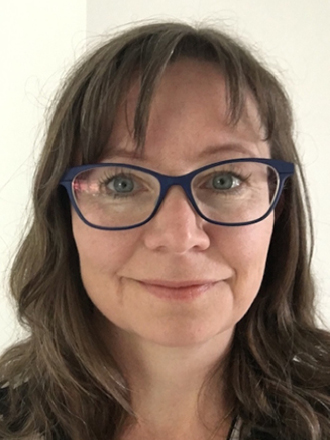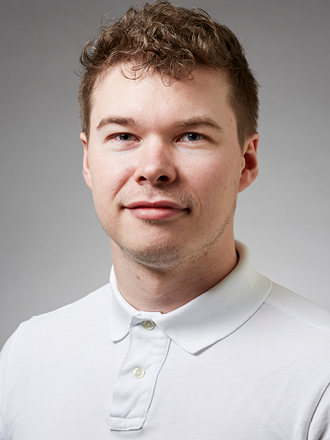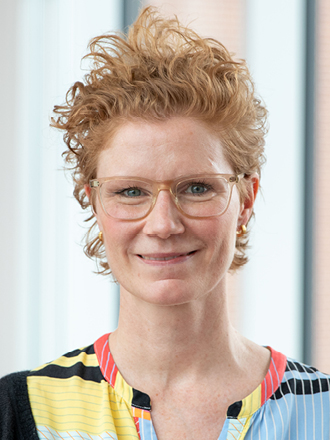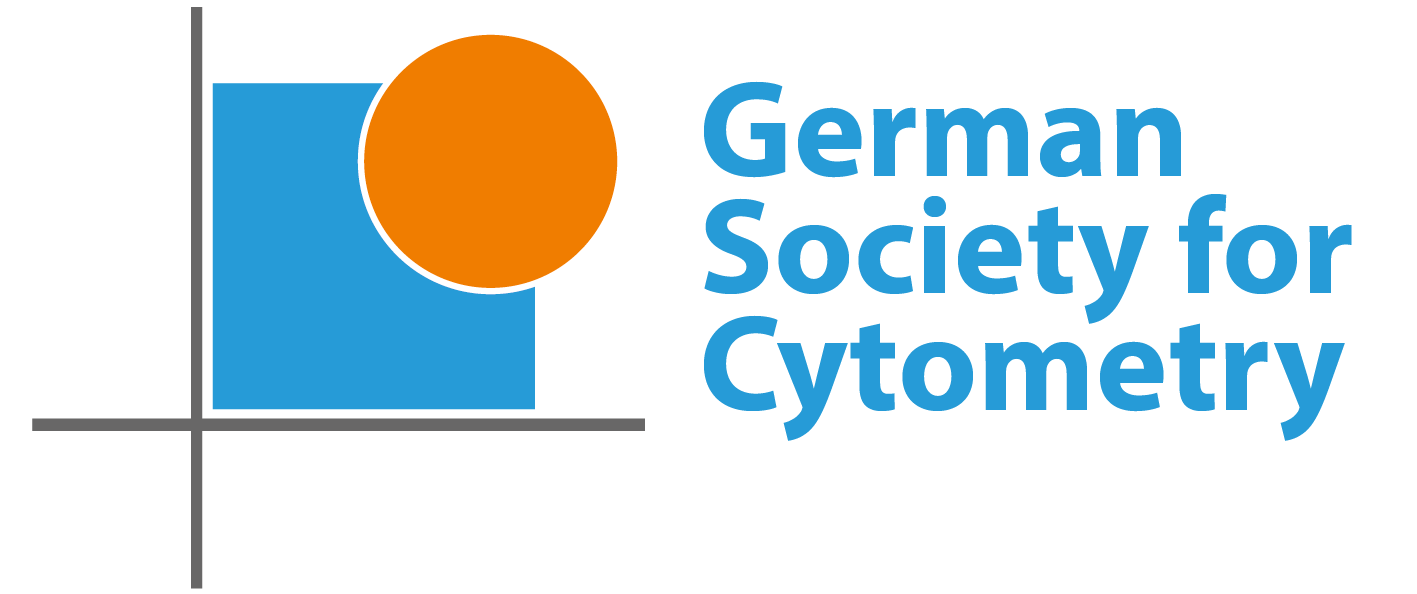European Guest Session: Danish Society
European Guest Session: Danish Society
Wednseday, September 20th, 2023, at 11:00 am
Chair: Anja Bille Bohn
Danish Society for Flow Cytometry (DSFCM) was founded in 1988 with the purpose of uniting Danish researchers and clinicians working with flow cytometry. Initially, the society was highly involved in standardization for clinicians using flow cytometry. During the years, the research aspect and new applications of flow cytometry have become more central.
DSFCM organizes two annual meetings with varying themes and relevant national or international invited speakers. The purpose is to connect the Danish researchers who are particularly interested in flow cytometry, to facilitate the communication and stimulate the research amongst members. Networking and time to talk to company members is always prioritized as part of the meeting program. The two annual meetings are free to attend for everyone interested and are often combined with social events, such as dinners or city/museum tours, for members of the society only.
About every 3 years, DSFCM is part of a joint Nordic meeting with the Norwegian and Swedish flow cytometry societies.
The Danish Society for Flow Cytometry contributes to the European guest session with two speakers representing two different topics within dimensions of cytometry:
Jesper Geert Pedersen, M.Sc, PhD, has established a 38-color full spectrum flow cytometry panel for in-depth immune characterization of metastatic melanoma patients. The aim is to monitor immunological changes during immunotherapy and potentially gain knowledge about treatment resistance.
Carina Rosenberg M.Sc, PhD, has implemented Imaging Flow Cytometry with the aim of quantifying rare dysplastic changes in bone marrow cells in patients with suspected myelodysplastic syndrome. This technique allows morphometric evaluation and can differentiate healthy hematopoietic stem cells from leukemic cells in bone marrow samples from patients with acute myeloid leukemia.

Biosketch
Anja Bille Bohn obtained her PhD in immuno-oncology from Department of Clinical Medicine at Aarhus University in 2013. Later that year, she joined the laboratory of Bjarne Kuno Møller at Department of Immunology at Aarhus University Hospital working, among other things, with mesenchymal stem cells in relation to kidney transplantation. In 2016 she joined the FACS Core Facility at Aarhus University where she has been responsible for implementing Imaging Flow cytometry. Aside from multi parameter flow cytometry, Anja is interested in analysis of bacteria and Extracellular vesicles.
Anja has been member of the board of Danish Society for Flow Cytometry since 2018 (current president).

Investigating host immune function in metastatic melanoma patients treated with immunotherapy
Affiliation
Department of Biomedicine, Aarhus University, Aarhus, Denmark
Abstract
Immunotherapy has revolutionized the treatment of metastatic melanoma leading to long-term survival in a subgroup of patients. Yet, 40-60% of the patients do not respond to immunotherapy treatment. While several mechanisms for treatment resistance have been proposed, clinical biomarkers for predicting treatment response are still lacking, emphasizing the need for further investigations. Since immunotherapy directly targets and modulates the immune system to re-invigorate the anti-tumor immune response it is pivotal to understand the interplay between therapy, cancer, and the immune system to improve biomarker research and cancer treatment.
In this project, we developed a 37-parameter spectral flow panel for deep single cell immunophenotyping of peripheral blood mononuclear cells collected before and during the first year of immunotherapy treatment of metastatic melanoma patients. Using this panel, we will perform thorough enumeration and characterization of T cells, B cells, NK cells, monocytes, dendritic cells, and plasmacytoid dendritic cells. By monitoring changes in the immune cells compartment during treatment, we can understand how the peripheral immune system is modulated by checkpoint inhibitor therapy and thereby identify potential resistance mechanisms. Furthermore, this enables identification of new biomarkers for predicting treatment response in melanoma patients. Overall, this will expand our knowledge of the interplay between the immune system and checkpoint inhibitor therapy and pave the way for identification of new biomarkers and thereby improve treatment of metastatic melanoma.
Biosketch
Jesper Geert Pedersen holds a PhD in Molecular Medicine from Aarhus University, Denmark, focusing on the host immune system in cancer patients. During his PhD he established a clinical cohort of metastatic melanoma patients treated with checkpoint inhibitors. Blood samples collected before and during treatment were used to study the host immune function in melanoma patients to identify new biomarkers for treatment response. During his postdoc, Jesper has specialized in spectral flow cytometry. Here, he developed a 37-marker panel to investigate how immunotherapy affects the blood immune cell landscape during treatment and to identify novel biomarkers for treatment response.

Rethinking diagnostics in myelodysplastic syndrome and unexplained cytopenia: employing morphometric evaluation of dysplasia by imaging flow cytometry
Affiliation
Department of Hematology, Aarhus University Hospital, Aaarhus, Denmark
Abstract
Myelodysplastic syndrome (MDS) is a group of malignant blood disorders marked by dysplastic myeloid cells in the bone marrow (BM) causing varying degrees of BM failure with peripheral blood cytopenia(s) resulting in symptoms of anemia, recurrent infections and bleeding. MDS arises in hematopoietic stem cells and has a propensity to progress into acute myeloid leukemia (AML). Even though cytogenetic and molecular analyses are important diagnostic tools in MDS, significant morphologic BM dysplasia remains the diagnostic hallmark of most MDS subtypes. However, accurate diagnosis of cases in which only subtle dysplastic changes are present are very difficult, and inter-scorer variability and subjectivity may be present, even among experienced hematopathologists – thus, novel techniques to assist the morphologic evaluation of BM cells are warranted.
In our laboratory, we have studied imaging flow cytometry to explore its diagnostic potential in the complex field of MDS diagnostics. The technique combines the high-throughput and multiplexing capabilities of conventional flow cytometry with the high-resolution imagery obtainable through fluorescence microscopy. This facilitates the identification of rare cell populations through flow cytometric gating of immunophenotypically defined subsets, and subsequent retrieval and quantification of image-based parameters such as size, shape, texture, and signal location. Specifically, we investigate how imaging flow cytometry can be used to quantify dysplastic changes in BM cells in patients with suspected MDS, and if morphometric evaluation can differentiate healthy hematopoietic stem cells from leukemic cells in BM samples from patients with AML.
Biosketch
I work as postdoc in Ludvigsen Lab at Department of Hematology, Aarhus University Hospital, Denmark. Here we perform translational cancer research, particularly in the field of hematological malignancies. Our projects cover comprehensive and in-depth analysis of cancer cells, ranging from basic laboratory molecular biology, characterization of the tumor microenvironment, large-scale proteomic studies, and imaging flow cytometry-based cell classification to the investigation of novel gene-editing therapeutics. Collectively, we focus on integrating these areas of expertise to develop clinical applicable diagnostics and therapeutics for cancer patients with current unmet clinical needs. I hold a PhD in immunology from the Faculty of Health, Aarhus University, Denmark and is a graduate of Biology also from Aarhus University. I have a fundamental interest in flow cytometry and in Ludvigsen Lab I am working with the imaging flow cytometry methodology and strive to demonstrate the diagnostic potential of the technique in the complex field of hematology. Specifically, I lead our projects on how imaging flow cytometry can be used to rethink diagnostics in myelodysplastic syndrome and acute myeloid leukemia by employing morphometric evaluation of neoplastic cells.
